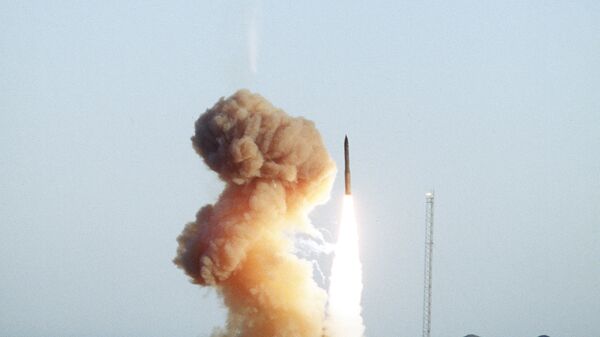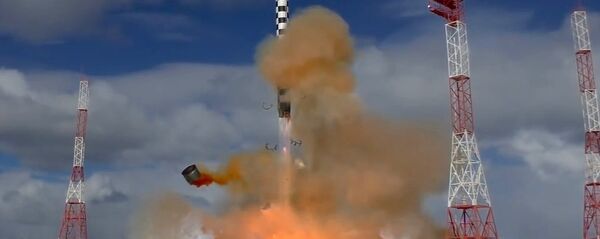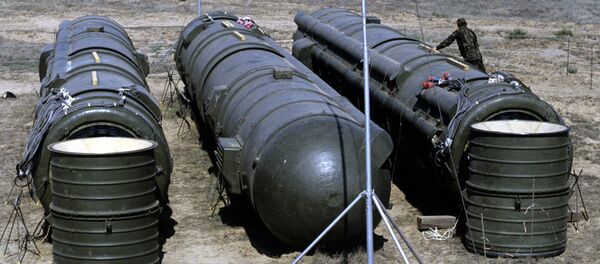"We strongly reject the US accusations of treaty violations by Russia. These accusations continue to remain completely ungrounded. For the five years of discussing this problem, the United States has not presented any concrete evidence of our guilt," Ryabkov said.
"Washington stated publicly in October that it would withdraw from the treaty. Through bilateral channels, we received a confirmation at a high political level that this decision was final and was not an invitation to dialogue," Ryabkov said.
"We are forced to proceed from the fact that regardless of the opinion and actions of Russia, the other participants of the INF Treaty and third countries, the United States will purposefully move towards its denunciation," he said.
READ MORE: Washington Doesn't Believe Russia Serious About Readiness to Preserve INF Treaty
He said Russia would respond to US deployment of intermediate- and shorter-range missiles threatening the country in case the United States quit the INF.
Meanwhile, Moscow has not received a response from Washington to the proposal to discuss disagreements on the terms of compliance with the INF Treaty at the level of military, Ryabkov stressed.
"As for the missile's demonstration, the INF Treaty does not demand this from us.. Thus, the demonstration of the missile to the Americans would be a manifestation on our part of increased transparency — beyond the treaty framework. At this stage, we did not have the feeling that such a step would be justified from both the political and technical points of view," Ryabkov said.
Ryabkov also emphasized that the demonstration of the missile would be an undesirable precedent amid US insistent attempts to get information about Russian missile developments.
READ MORE: Iran Reportedly Turns Down US Secret Talks as Washington's 'Lost Tehran's Trust'
"Even assuming that Washington and its allies have no such plans today, we cannot rule out the emergence of such ideas and plans tomorrow — taking into account deep deterioration of security conditions in the Euro-Atlantic, the steady anti-Russian sentiment of the US Congress and the prevailing Russophobic manifestations in NATO," Ryabkov told the Kommersant newspaper, when asked whether Moscow believed the assurances of NATO and the United States that they had no plans to deploy medium-range and short-range missiles in Europe.
Agreements with Western states do not guarantee anything, the deputy minister noted.
"It is clear that political agreements and even legally binding agreements also cannot give a full and indefinite guarantee in the current environment, as we see with the example of the withdrawal from the INF Treaty by Washington," the diplomat said.
The Russian Foreign Ministry has said that the 9M729 missiles correspond to Russia's obligations under the INF Treaty and have not been upgraded and tested for the prohibited range. Moscow has repeatedly pointed out that the United States provided no proof that Russia in fact violated the treaty by deploying the missiles.
READ MORE: US Attempt to 'Bury' INF Treaty Creates New Risks for Europe — Lavrov
Russia and the United States have repeatedly accused each other of violating the treaty.
Moscow, in particular, stated that the United States was deploying launchers for Tomahawk missiles in Romania and Poland, which is prohibited under the agreement.





